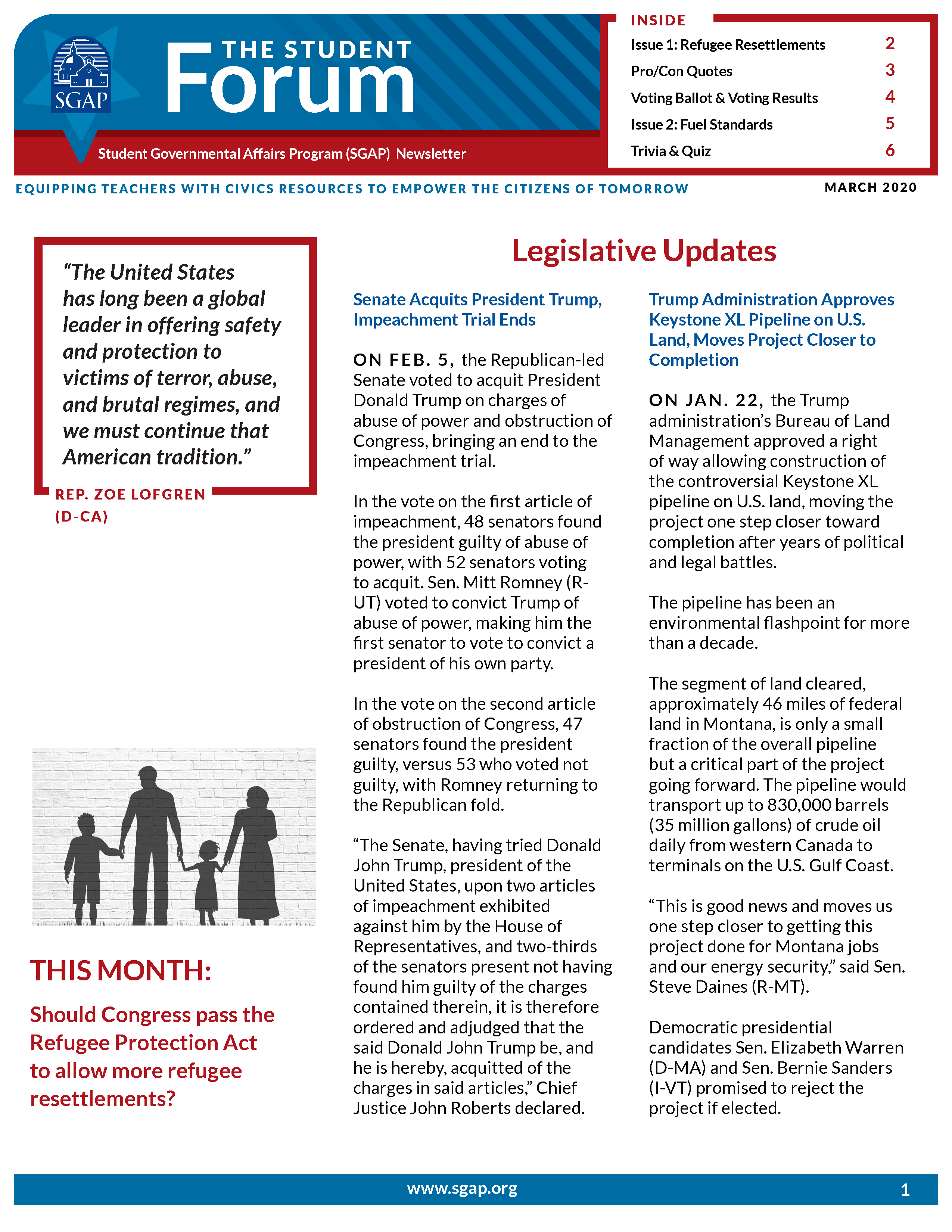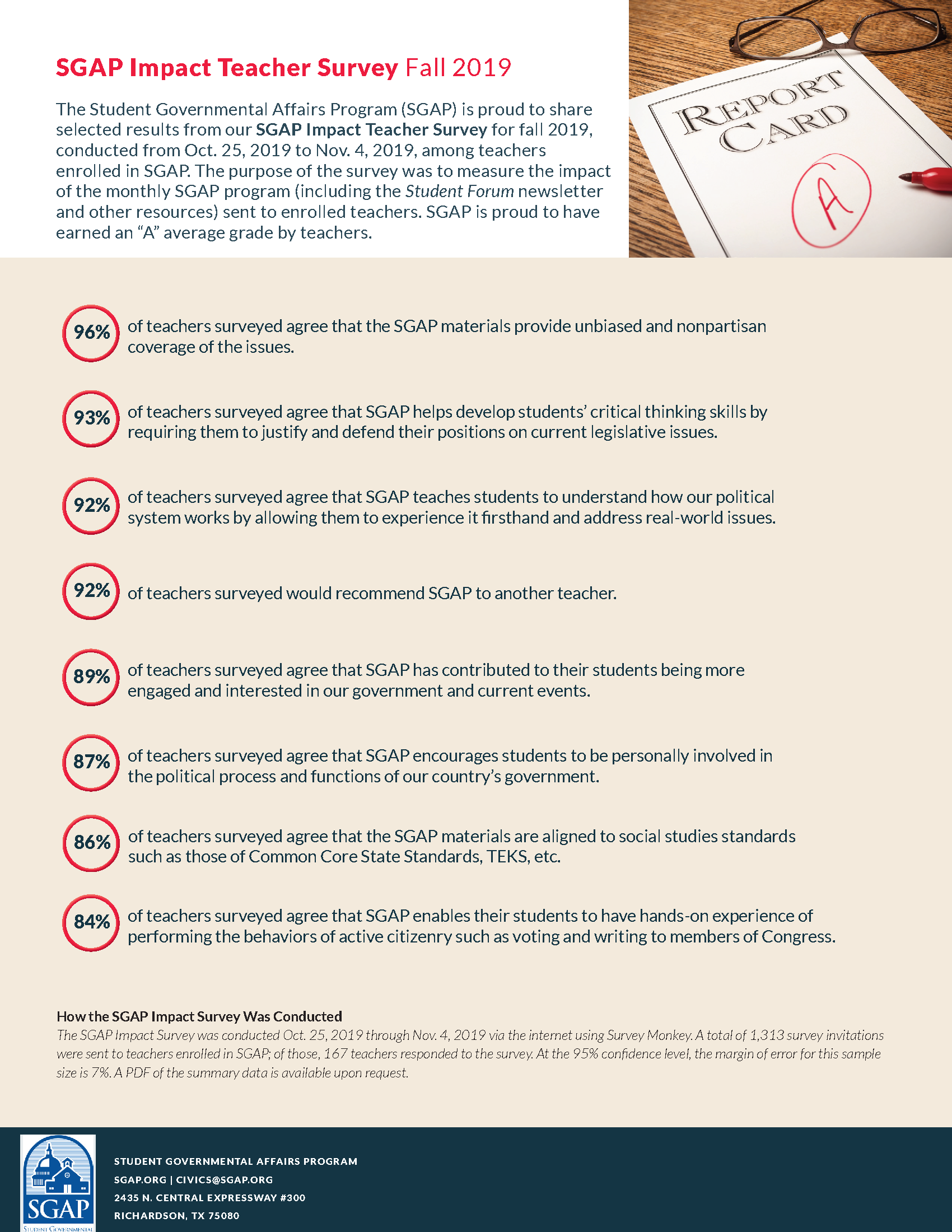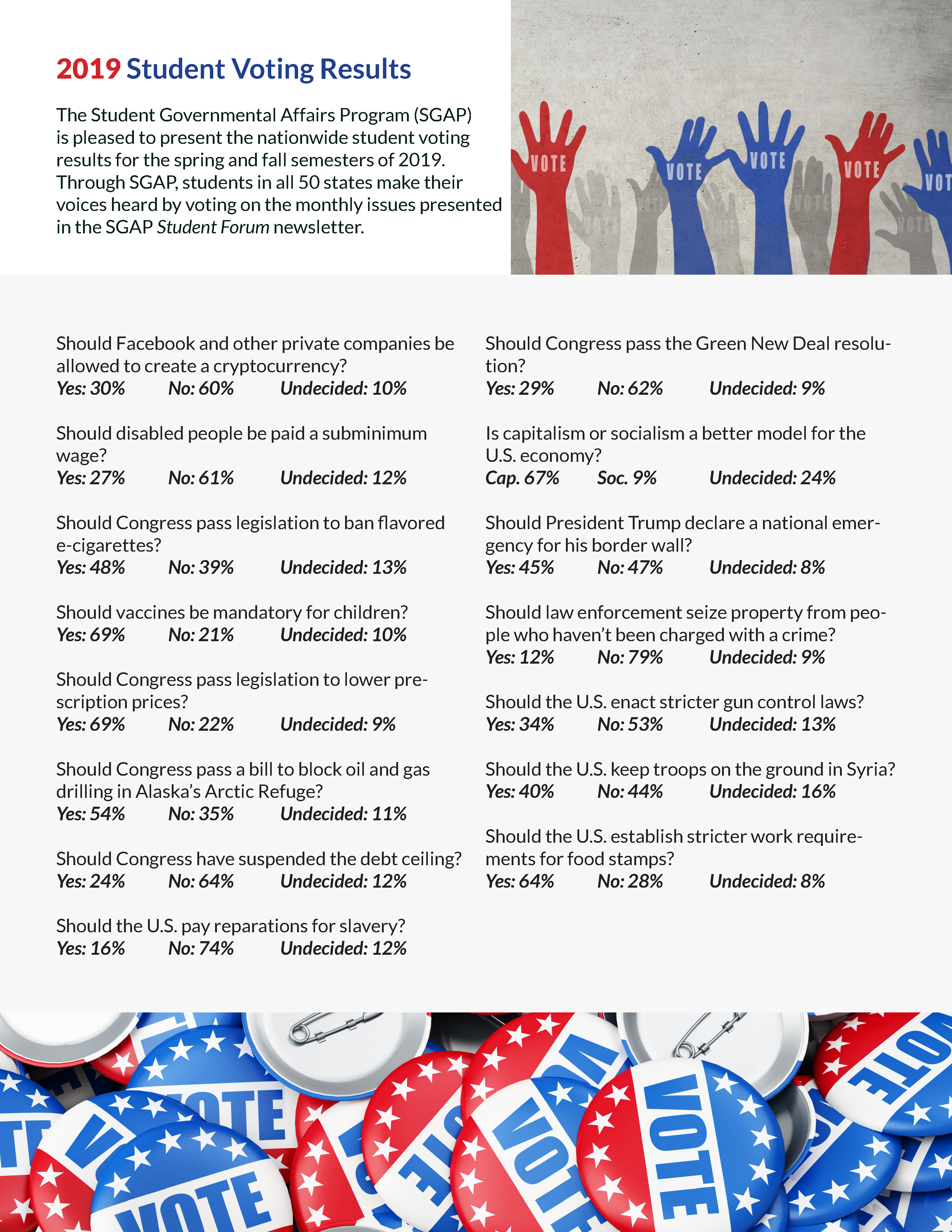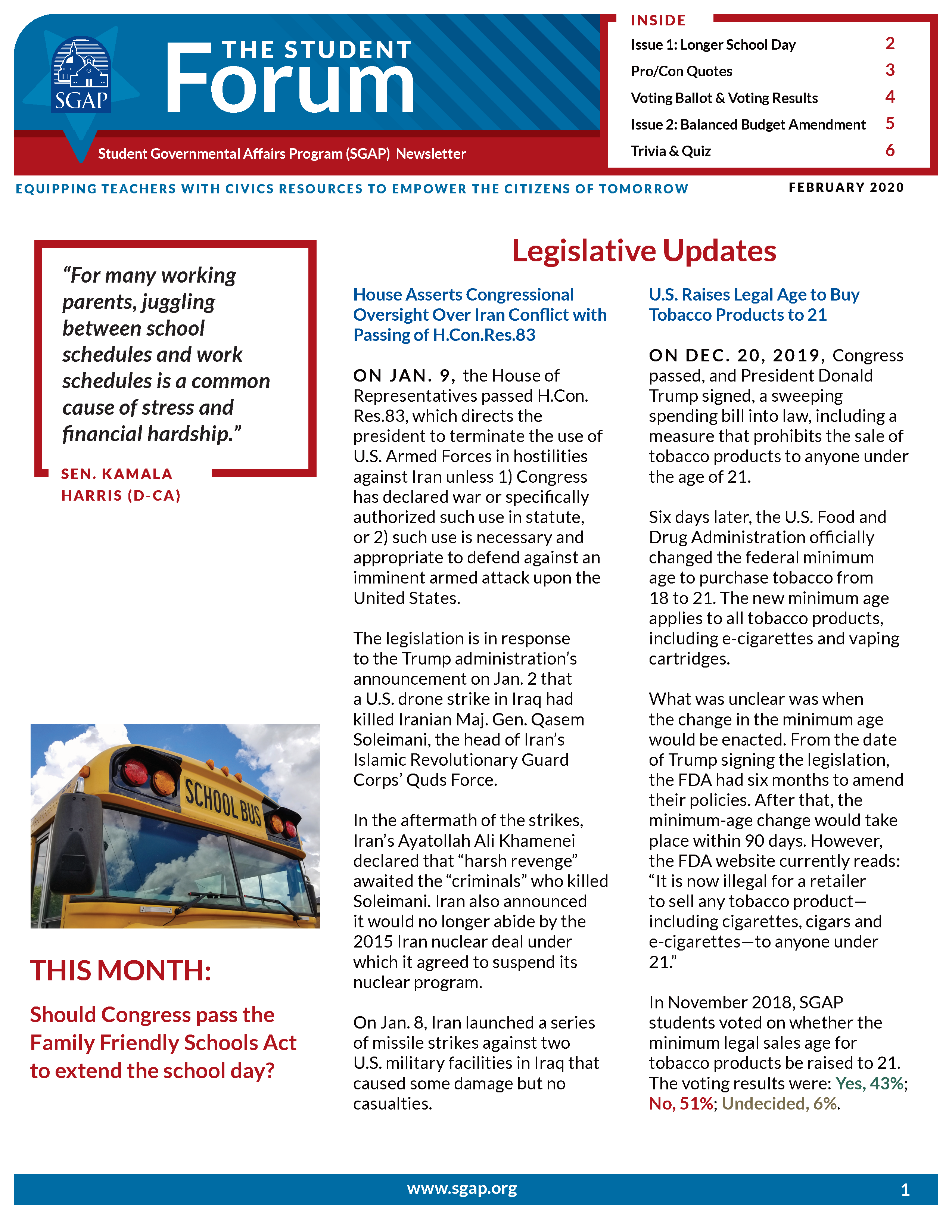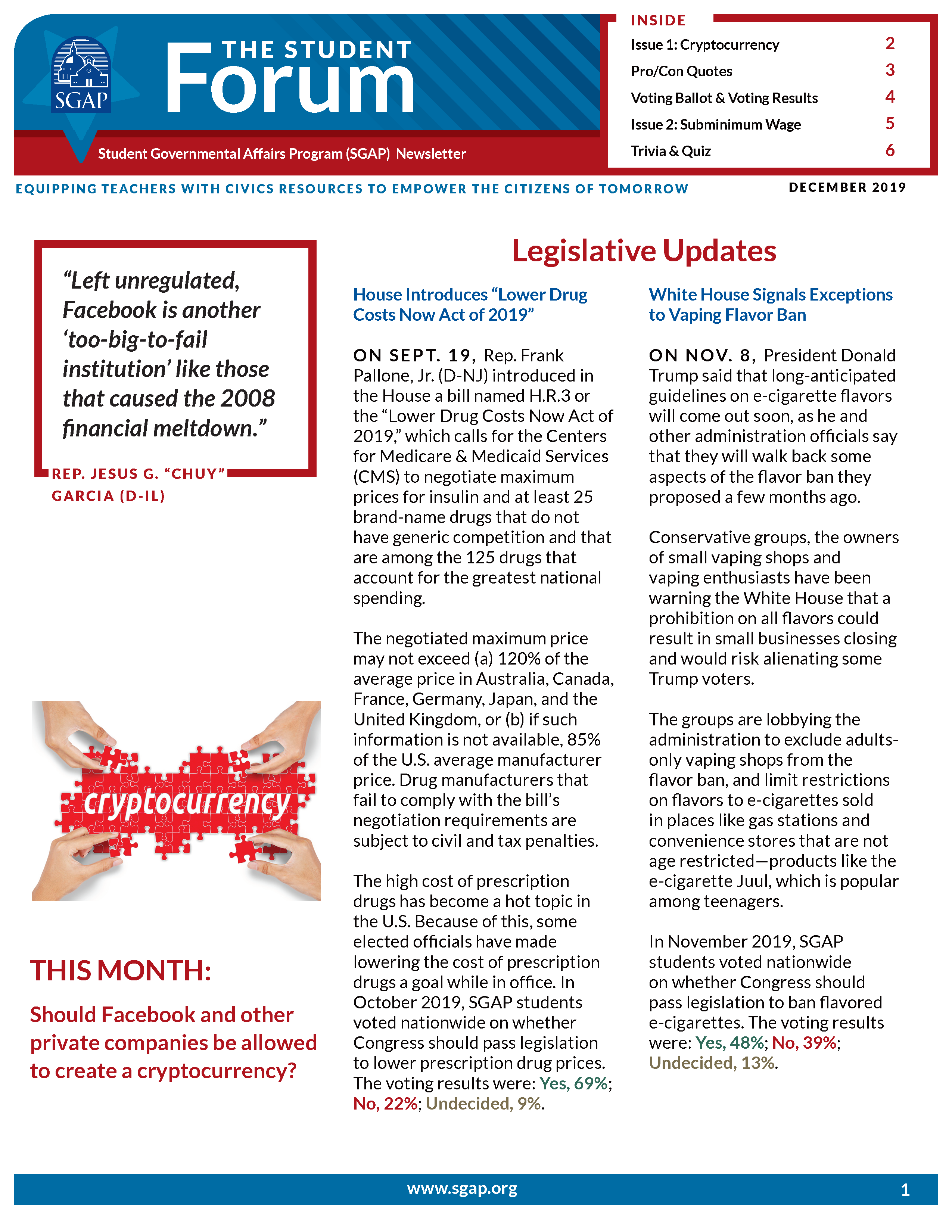Refugees
1. Refugees have the right to move anywhere in the U.S. after their initial resettlement, but at their own expense.
a) True
b) False
2. According to the UN Refugee Agency (UNHCR), there are approximately ________refugees in the world, more than half of whom are under age 18.
a) 25.9 million
b) 44.1 million
c) 70.8 million
3. The Refugee Protection Act of 2019 was bicameral legislation introduced in the House as H.R.5210 and the Senate as ____ on Nov. 21, 2019.
a) S.1088
b) S.2936
c) S.3048
4. According to Amnesty International, the list of the world’s top 10 refugee host countries doesn’t include which country or countries?
a) United States
b) Germany
c) A and B
5. Texas and Alabama were the only states to opt out of the refugee resettlement program for 2020, after President Trump gave states the option to opt out.
a) True
b) False
Fuel Standards
1. The legislation enacted by Congress in 1975 that directed the National Highway Traffic Safety Administration (NHTSA) to establish CAFE standards for cars and light trucks was the _____.
a) Clean Power Plan Act
b) Energy Independence and Security Act
c) Energy Policy and Conservation Act
2. The CAFE standards aimed to reduce U.S. dependence on imported oil by increasing vehicle fuel efficiency. What does CAFE stand for?
a) Carbon Automobile Fuel Efficiency
b) Corporate Average Fuel Economy
c) Conservation Automobile Fuel Efficiency
3. California is the only state permitted to issue emissions standards under the federal Clean Air Act. Other states may choose to follow California’s standards, but may not set their own.
a) True
b) False
4. Some 13 states and the District of Columbia follow the stricter California standards. These states are known as _______ states.
a) C-CAFE
b) CARB
c) CRAF
5. Who is the lead sponsor of H.R.978, the Clean and Efficient Cars Act of 2019?
a) Sen. Kamala Harris (D-CA)
b) Rep. Pete Aguilar (D-CA)
c) Rep. Doris Matsui (D-CA)


